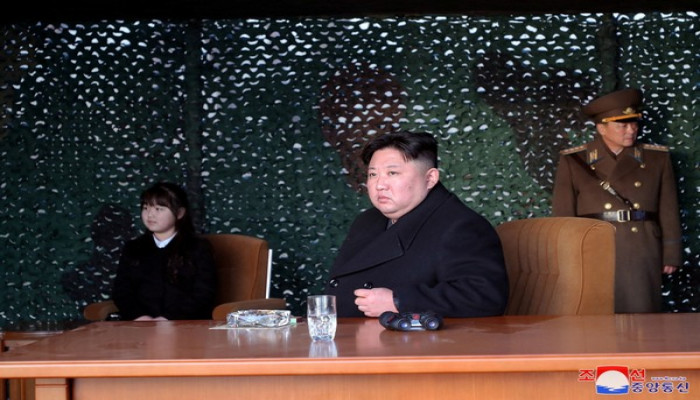North Korea revises constitution on nuclear policy, cites US provocations
- In Reports
- 11:28 AM, Sep 28, 2023
- Myind Staff
North Korea has solidified its commitment to expanding its nuclear capabilities by incorporating this agenda into its constitution, signaling defiance in response to persistent requests from the United States to resume discussions that could lead to economic assistance in exchange for nuclear disarmament.
During a session of the Supreme People's Assembly, the country's ceremonial legislature, Leader Kim Jong Un declared the move. He emphasized that it was necessary to counteract perceived threats from the United States and its allies, who were seen as trying to curb Pyongyang's nuclear aspirations and undermine its political system.
Kim was quoted as saying by the state's Korean Central News Agency, which referred to the country by its formal name, "The DPRK's nuclear force-building policy has been made permanent as the basic law of the state, which no one is allowed to flout with anything."
Kim also stressed, "the need to push ahead with the work for exponentially boosting the production of nuclear weapons and diversifying the nuclear strike means and deploying them in different services," KCNA said.
Around the same time as his speech, North Korea made the decision to deport U.S. soldier Travis King, who had entered North Korea without official authorization in July.
At the start of the year, Kim Jong Un initiated the year with a renewed threat to significantly enhance North Korea's nuclear capabilities, hinting at intentions to ramp up production at an unprecedented rate.
Since then, Kim Jong Un has also revealed a series of new delivery systems designed for nuclear strikes. One of the recent developments included the launch of a submarine, which North Korea claims are capable of tactical nuclear attacks. However, South Korea's military has expressed skepticism regarding the vessel's capabilities.
Despite Kim's ability to surprise critics with the expansion of his missile program, North Korea, a heavily sanctioned state, faces challenges in rapidly increasing its production of weapons-grade uranium and plutonium. Experts in non-proliferation suggest that the best North Korea can hope for is to gradually escalate its production of fissile material, which could potentially be used to create approximately six bombs annually.
Kim recently concluded a visit to Russia, during which he held talks with President Vladimir Putin and toured various weapons facilities. The United States has accused Kim of providing munitions to support the Kremlin's military actions in Ukraine.
Kim's visit to Russia has raised concerns about potential technology transfers involving dual-use materials. These transfers could be masked as assistance for North Korea's civilian space and nuclear programs, appearing to align with international norms. However, these materials could also be repurposed to enhance North Korea's missile and nuclear weapons capabilities, which would violate United Nations Security Council resolutions.
Siegfried Hecker, a professor emeritus at Stanford University with experience in inspecting North Korea's nuclear facilities, suggests that Russia might extend assistance to Kim Jong Un to help him operationalize the planned experimental light water reactor. This assistance could be framed as support for peaceful electric power generation.
“North Korea could then repurpose it for plutonium production,” he said in an interview with the 38 North specialist website. “For the shorter term, what concerns me most is Russia clandestinely supplying plutonium directly.”
This would enable North Korea to significantly boost its stockpiles of fissile material usable in weapons like miniaturized warheads, he added.
Image source: ANI







Comments